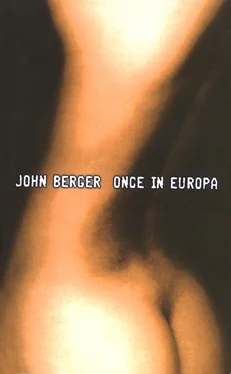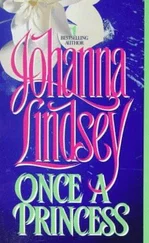John Berger - Once in Europa
Здесь есть возможность читать онлайн «John Berger - Once in Europa» весь текст электронной книги совершенно бесплатно (целиком полную версию без сокращений). В некоторых случаях можно слушать аудио, скачать через торрент в формате fb2 и присутствует краткое содержание. Год выпуска: 2014, Издательство: Bloomsbury Publishing, Жанр: Современная проза, на английском языке. Описание произведения, (предисловие) а так же отзывы посетителей доступны на портале библиотеки ЛибКат.
- Название:Once in Europa
- Автор:
- Издательство:Bloomsbury Publishing
- Жанр:
- Год:2014
- ISBN:нет данных
- Рейтинг книги:3 / 5. Голосов: 1
-
Избранное:Добавить в избранное
- Отзывы:
-
Ваша оценка:
- 60
- 1
- 2
- 3
- 4
- 5
Once in Europa: краткое содержание, описание и аннотация
Предлагаем к чтению аннотацию, описание, краткое содержание или предисловие (зависит от того, что написал сам автор книги «Once in Europa»). Если вы не нашли необходимую информацию о книге — напишите в комментариях, мы постараемся отыскать её.
Once in Europa — читать онлайн бесплатно полную книгу (весь текст) целиком
Ниже представлен текст книги, разбитый по страницам. Система сохранения места последней прочитанной страницы, позволяет с удобством читать онлайн бесплатно книгу «Once in Europa», без необходимости каждый раз заново искать на чём Вы остановились. Поставьте закладку, и сможете в любой момент перейти на страницу, на которой закончили чтение.
Интервал:
Закладка:
Odile’s her name.
There’s a Saint Odile, did you know that?
Yes, I shouted, her fête is the thirteenth of December.
She was born blind in Alsace, the man shouted back. He was at least fifty and thin as a goat’s leg.
Was she?
She saw with her eyes for the first time when she was grown up. Then she founded a monastery.
The thin old man, who wasn’t from the valley and who knew all about Saint Odile, was pulling on the chains of a pulley which worked a machine for grasping and lifting massive weights.
Now he’s going to take the hat off the bread, said Régis.
I’ve just given you the bread, I said, understanding nothing.
See over there what’s sizzling?
In the sand?
That’s the bread with its hat on. Now watch!
Several men began to prod at the bread with long bars. To every blow the thing responded by spitting out fire. I was eating sausage. The old man’s machine came down and lifted the top off the bread as if it were a cap. Under the cap everything was incandescent. I could feel the onrush of heat, although I was at the other end of the shop. The edges of the white-hot underneath were dribbling like a ripe cheese. When a dribble fell off and hit the ground it made a brittle noise like glass and turned black. All the men were holding up shields in front of their faces.
Each bread weighs a ton, said Régis. He drank from a bottle of wine and some of the wine ran down his neck. A ton, he continued, and ferromolybdenum is worth six thousand a kilo — work it out for yourself, you’re still in school — one bread is sold for how much?
Six million.
Correct.
The bread, one and a half metres in diameter, was now phosphorescent in the sand. Régis wasn’t looking any longer. I couldn’t take my eyes off it.
Do you know the story of the Two Hunters? Régis asked.
Which story?
The story of the Two Hunters in the Forest.
The bread was changing colour. Its whiteness was turning violet. The violet of a child with croup.
I don’t think I know the story of the Two Hunters.
Once there were two hunters in the forest up at Peniel: Jean-Paul and Jean-Marc.
Water from a pipe in the roof, with hundreds of holes in it, was falling like rain onto the bread. It was scarlet now.
Jean-Paul stops and says: Look over there, Jean-Marc! I can’t see anything, replies Jean-Marc. Jean-Paul, still pointing, says: You must be blind, over there by the spruce, the one that’s been uprooted. I can see the root and the earth and the stones, Jean-Paul, I can’t see more.
The rain falling on the bread was making steam and it was hissing like a cricket.
The two hunters go deeper into the forest. Can you see her now? shouts Jean-Paul. Where? By the snow under the roots, Jean-Marc. In God’s name, yes! screams Jean-Marc. Both men stop in their tracks, then they start making their way towards the tree. The snow is up to their waists. After a while they stop to get their breath back.
The bread was getting darker and darker in colour and I could scarcely see it anymore because of the clouds of steam coming off it.
Alive? asks Jean-Marc. Jean-Paul pushes his way forward. I can feel it from here! he cries. Be careful, Jean-Paul! Careful, Jean-Paul! Jean-Paul disappears. After a moment Jean-Marc hears his friend laughing, then his laugh changes into a sigh. The happiest sigh in the world, my friend. Jean-Marc knows what is happening so he looks at the tree tops. Whilst he looks at the tree tops, he counts. When he’s counted to five thousand, he looks down, towards the spruce. No sign of Jean-Paul. Now it’s Jean-Marc’s turn.
The rain on the bread had stopped.
Jean-Marc too can feel it. He can hear the dripping. Like Jean-Paul, he falls forward onto his face and starts to laugh. His laugh too becomes a sigh.
The bread was black now, with colours in it like oil.
Do you know what they were doing, Jean-Paul and Jean-Marc?
I shook my head.
You don’t know, Odile, what the two hunters were doing?
No.
They were doing the lying-down waltz!
I looked at Régis and I thought: My kid brother — he was nine years older than I — you’re drinking too much.
The sheet sail and everything hanging from it is turning south, towards the sun in a sky of the deepest winter blue, like the blue we had to wash clothes with.
On the day when Christ ascended to heaven, the Brass Band went from hamlet to hamlet in the village playing music. Their uniforms were newly pressed, their instruments were glittering in the sun, and the leaves of the beech trees were fresh as lettuces. They played so loud they made the windows rattle and tiles fall off the roof. And after each concert in each hamlet the public offered them gnôle and cakes, so that by the end of the afternoon on Ascension Day, after a number of little concerts, the first and second saxophones were drunk as well as several trombones and a drum or two. On Ascension night, Father came home with his trumpet a little bit the worse for wear. With Father, though, nobody could tell till the evening. He never let it influence his fingers when playing.
He died on February the ninth, 1953. The next Ascension Day the band came to play in our orchard in his honour. They played a march from Verdi’s Aïda and a tune called “Amazing Grace.” Men from the factory lined the fence of the orchard listening to the music. Mother stood by the stable doors, arms folded across her bosom, looking up at the sky. And suddenly Papa’s house with its three rooms, its hayloft, its little wooden balcony, its chopped wood, dwarfed the factory which was the size of six cathedrals.
“Amazing Grace” begins sad and gradually the sadness becomes a chorus and so is no longer sad but defiant. For a while I believed he was there. Later the music listens to itself and discovers that something has fallen silent. Irretrievably. He had left.
Whilst I was listening to “Amazing Grace” on that afternoon in May 1953, I touched something which I wouldn’t be able to name until twenty years later. I touched the truth that the virility which women look for in men is often sly, slippery, impudent. It’s not grand, what they’re looking for. It’s cautious and cunning, just like Father was.
The men on the other side of the fence started to clap and Michel waved at me. I turned away, saying to myself that only a communist would wave at a moment like that!
Michel’s motorbike was red and was made in Czechoslovakia. The spare parts for it were cheaper than for any other bike, Michel said, because Czechoslovakia was communist and the communists didn’t put profit before everything else. On several Sundays he asked me if I’d like to go for a spin with him and each time I refused. He was too sure of himself, he thought he knew better than anybody else in the valley. He had called my father a Chopping Block. Not to me. I heard about it from a friend. Achille Blanc has been a chopping block for others all his life! Those were his words. So I said no to him.
The sixth time he asked me was in August. We were both on holiday. The hay was in the barn. Régis had bought an old third-hand Peugeot and was painting it in the orchard. Emile was there in the house when Michel came. He drives well, Odile, said Emile, you’ve nothing to be frightened about. On Wednesday morning early, Michel announced, I’ll pick you up at five. At five! I protested. Five’s not too early if we’re going to Italy! Italy! I screamed. Yet, however loud I screamed it, the word was having its effect. If we were really going to drive to Italy, everything was beyond my control. I said nothing more. And on Tuesday night I prepared my trousers, my boots, and a haversack with a picnic for us both.
We went over the Grand St. Bernard a little to the east of the Mont Blanc where the wind now is blowing the snow like my chiffon scarf against the blue sky. Neither of us knew what life had in store. Nothing happened. Michel had brought a thermos of coffee which we drank from for the first time near Chamonix. We passed a factory which, Michel said, was like a copy of ours. It took up less space. On the bike we climbed higher and higher. We ate our picnic above the tree line. I never breathed so much air in my life. Mouth, nose, ears and eyes all took in air. At the summit we threw snowballs at each other and saw the dogs. They were as big as ponies. There was a lake. A lake at that height was as surprising as tears at a victory. When the wind was too cold I put my head down against his leather jacket. I tucked my knees under his legs and held on with one hand to his leather belt. Around the hairpins I lay down with the bike like grass blown by the wind.
Читать дальшеИнтервал:
Закладка:
Похожие книги на «Once in Europa»
Представляем Вашему вниманию похожие книги на «Once in Europa» списком для выбора. Мы отобрали схожую по названию и смыслу литературу в надежде предоставить читателям больше вариантов отыскать новые, интересные, ещё непрочитанные произведения.
Обсуждение, отзывы о книге «Once in Europa» и просто собственные мнения читателей. Оставьте ваши комментарии, напишите, что Вы думаете о произведении, его смысле или главных героях. Укажите что конкретно понравилось, а что нет, и почему Вы так считаете.












